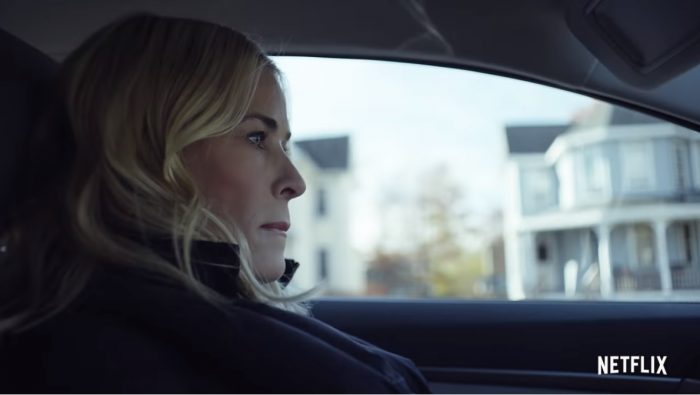My exposure to Chelsea Handler, prior to her book, Life Will Be The Death Of Me, was limited by design, because I felt there was little I related to.
Visually, there was a mismatch, and there wasn’t much drawing me in.
Today, I understand that mismatch and dissonance as visual distraction and judgments I imparted unfairly onto Chelsea, that really just exposed my own biases. Not giving her the time of day wasn’t all that much about her, as it was about me. Perhaps a little bit about her. But she’s changed. And so have I.
I was first intrigued by her podcast episode on the Enneagram, which was a kind of personality test I had never heard of before. I’ve always been interested in psychology, so that was the “safe common ground” that drew me into her world.
But once I was in, I felt my mind growing and transforming, so I decided to stay, and now I’m inviting you into this world, too.
Historically speaking, society has held conflicting ideas about what women should say, in what spaces, and at what cost, and there are just as many women challenging these standards, as there had been women who were hurt by them. Chelsea really has no filters, and it’s incredibly empowering to listen to everything she has to say.
My new book is available for pre-order! Life Will Be the Death of Me will be out April 9. Pre-order now and get the first chapter in advance. https://t.co/Vh2fWGFm6C | #lifewillbethedeathofme pic.twitter.com/mtq7FLE2k9
— Chelsea Handler (@chelseahandler) March 7, 2019
In Life Will Be the Death of Me, which she calls her book about therapy, she addresses real-life issues, and the pain and anger that plague us all. This is a book about her own journey into mindfulness, and how that manifested into a really beautiful way of being, after some rather messy episodes.
Our relationship with pain is naturally dysfunctional. We reject it as a survival instinct, but few of us come out of painful experiences unscathed. As such, we, as a collective and as individuals, have amassed various degrees of anger within us, but how many of us really look at our poor behaviour and think, why did that come to be?
Chelsea does.
“It took me until I was 40 years old to understand that I had so much anger that I didn’t understand why, until the election, which was a huge trigger for me, as it was for millions in this country, when my world became unhinged again. And that election represented the feeling I had when I was a little girl and the whole world became unhinged, and I lost it again. And this time, I had the resources and the knowledge to try and sit down with somebody and get to the root of it, because I wanted to be coming from a place of positivity and optimism, not anger and outrage.”
I echo these sentiments completely.
Even though I don’t yet have 40 years in me, I don’t want to spend another day living in the anger that I’ve collected along the way, merited or not. I know of people in their 50s and 60s who still struggle with anger and the harder things they refuse to come face-to-face with. But what kind of quality of life is one that is dominated and controlled by anger?
How we respond to anger—that of our own, and that which is projected onto us—can make a huge difference in the landscape of emotions. In her own quest to become a better person, and to acquire more empathy, she offered a better way to express our views over something that we may deem as angering.
She said, instead of asking someone, “why are you like this?” a better question to ask is, “what happened?”
These days, I don’t go a day without listening to her, and if there are no new episodes, I’m perfectly happy with replays, because she imparts so much knowledge without ever trying to teach you anything. Sometimes with podcasts, especially ones headed by celebrities, you often feel like you’re short-changed, but not Chelsea—she gives away her castles.
Even my most favourite podcasts include episodes that may not appeal to me that much, so sometimes I pick and choose episodes according to how they are titled. But for Chelsea, this rule is broken.
Listening to her is like listening to your best friend—you would always listen to anything and everything they have to say. The knowledge and resources that she has sought out on her journey to become a better person are completely infused in her own stories and how she tells them. She doesn’t back down on uncomfortable topics or embarrassing ones, and chances are, she’s telling the stories that you were too embarrassed to tell. Perhaps at the time of those events, she may not have been the best influence around, but the insight that she brings now, through those stories, is worth a sumo wrestler’s weight in gold.
Listening to Chelsea’s podcast is essentially like being a fly on the wall of her book tour, with added commentary, and the most un-commercial commercials—yes, I even love her sponsored spots. I find it the least annoying of all podcast and radio commercials, and she’d appreciate this remark more than anyone else I know, not because I work in the audio/radio industry, but because of my application of her word, “annoying.”
It’s not about me; it’s about Chelsea. But the more I listen to her, the more the lines blur between who it’s really about, because I totally identify with her now.
Her problems are my problems.
Her anger and pain and loss and grief all appear within my own life.
Acknowledging that her power woman exterior and boss lady control tendencies all stemmed from a place of lacking love shattered my own exterior. Her continued use of the word “actualized” has made it my guiding word of the year. And her emphasis on being “awakened” helps me wake up a little bit more every day. I’ve become a better person just from listening to her.
And you will, too. You’re on this platform because you are interested in the mindful life, and being interested in this subject matter automatically prequalifies you as an ideal reader for her book, or listener for her podcast. Try it and you’ll see—it’s like her content was made for you, for us.
Hearing her talk is like being fed digestible dosages of therapy. She’s basically a version of Unf*ck Yourself that’s perfectly tailored to the female experience, whatever size you happen to be. And learning about her journey toward a better self makes us better, too, just by being bystanders.
In a world increasingly saturated with noise and distorted by filters, everything seems a bit false; it’s just a matter of degree. The part of us that yearns for the truth doesn’t get satisfied, leaving us feeling fragmented and lone with the rawest, messiest parts of us.
Until Chelsea, who verbalizes so much that we just don’t hear in our society today.
At first, I was shocked to discover how alike we are. But the more I listen to her, the more I realized that being alike to Chelsea isn’t a unique thing, it’s something that girls coming of age all generally experience. We go through largely similar experiences that fragment us, and a large part of us is left fragmented, while others manage to dust off the splinters and continue with life. We carry the pain through life, without ever tending to those splinters.
Chelsea, in Life Will be the Death of Me, tends to those splinters, which happen to be more universal than unique. Even with her celebrity stature, she always had modest desires as a little girl, and that makes her so incredibly relatable,
“I wanted someone to look after me – someone who would ask where I’d been. I wanted a mother who wanted other kids’ parents’ phone numbers. I wanted parents who didn’t bounce checks. I wanted to be picked up from Hebrew school on time – or at all – in a car with four doors that opened and closed.”
Life Will Be the Death of Me, Chapter Five
Those of us who grew up with a lack of attention, love, or affection end up looking for it in all the wrong places.
There is a common theme in the tragedies we experience. We all derail in our unique ways, but the reasons why we derail, our roots—they all look the same. That’s what makes Chelsea compelling. She really goes to the roots of the pain and anger and comes out with light. Life Will be the Death of Me isn’t a book about success stories or being an anomaly or something crazy and far-fetched. The topics couldn’t be more commonplace, and that’s why it works.
Like Chelsea, I am a strong advocate for therapy. But also like Chelsea, finding a therapist who works for us, isn’t easy. Even when money’s not an issue, and it really isn’t an issue for her, there are still a million ways that therapy could end up an awkward dance that you just don’t want to continue.
Finding therapy that works and matches our needs and readiness, takes time, money, luck, our own readiness, and actualization, and seemingly so many more unknown factors that morph and change with each person and each day. But hear me out on one thing—if you just listen to her, you’re already way ahead of the game.
I could go on telling you about all the wonderful realizations and life lessons I’ve learned from Chelsea, but the same life-changing content is available at your fingertips, too. Getting it firsthand, at your pace and rhythm, is so much better, and I guarantee that there will be quite a few laughs along the way, because you really can’t take the girl out of comedy.
Life is short. Don’t settle in chaos. Don’t live in the default of other people’s mistakes.
Lead a life that you love, and one that is fulfilling. What the world needs is not your complaints or anger, it’s your light, the one that is perhaps dimmed by the world’s troubles—and I hope you find the courage to seek it out and shine.
It will be World Peace day in a few days.
Peace itself, as concept and condition, has become greatly challenged in recent years. But without peace within us, how do we expect there to be peace on Earth? Without peace in our immediate family and networks, how do we expect there to be peace among nations who have traditionally hated one another? How does that happen?
We can only ever give what we have.
If you look closely at the ones challenging peace, it’s not difficult to spot the pain and darkness they carry, and our life is an extension of our mind and heart. It’s not just a collection of the things that have happened to us, it’s about whether we triumph and what we choose to hold onto.
The following is a quote that Chelsea has repeated often during her book tour. It’s the one she always uses to end her sessions, and it’s worth repeating, today and every day.
“I define me. No event or person does this. I define me. I decide who I am and how I’m going to behave, and I choose to be better. To look more carefully, to trudge deeper. To think about other people’s pasts and not judge someone for doing or handling something differently than I would. To understand my limitations, my shortcomings – that is my growth edge.”







Read 0 comments and reply